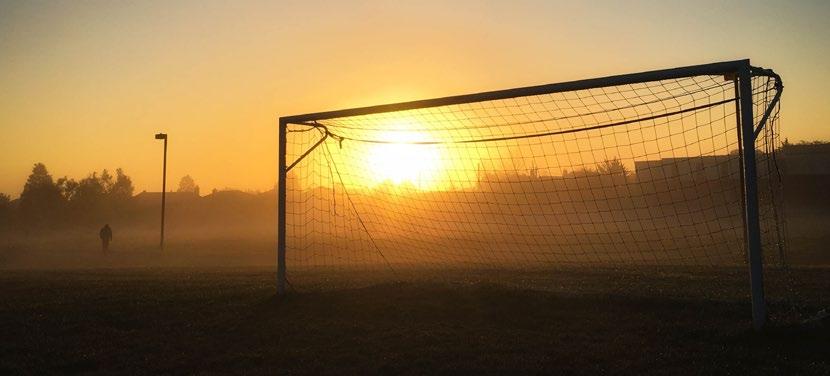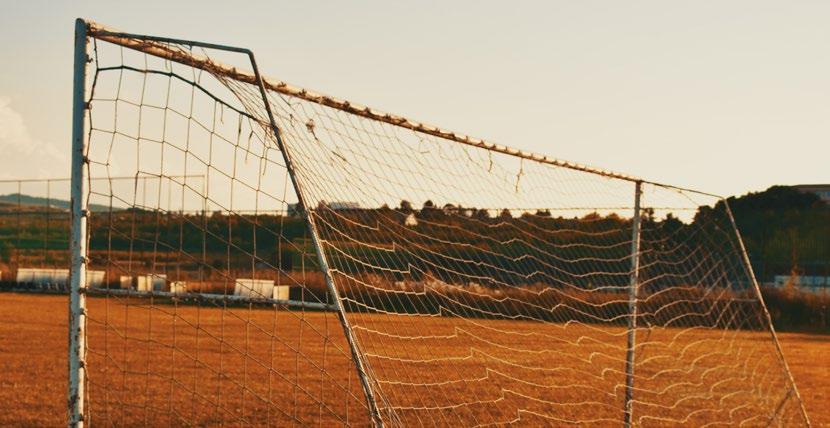
3 minute read
The Importance of Facilities in Football: A Home To Nurture Role Models
THE IMPORTANCE OF FACILITIES IN FOOTBALL: A Home To Nurture Role Models
Author: Bennett Bailey
Advertisement
Opinion
Bennett Bailey is the President of SAFA Cape Town and the Deputy Director for Client and Scientific Support in the Western Cape Department of Sport and Culture. He writes in his own capacity.
For centuries, football has been a vehicle of hope for many South Africans. As the country’s most popular sport, it has been a mechanism for both athletic ability (competing to be the best at all levels) and social change (conquering injustices caused by oppression while in the process achieving equality and unity among people).
But the legacy of Apartheid has provided that economic divisions favour a minority of individuals to own large proportions of wealth, while the majority have remained at a disadvantage. For many years, Cape Town has been known as one of the most unequal cities in South Africa. And the gap between rich and poor is particularly evident when it comes to sport – especially in football.
Football facilities were created to serve as a home to nurture footballers in becoming role models, both for their athletic performances, and for being part of a movement that brings about social change. The facilities in this sense become a home for football that represents accessibility and aims to attract members to join its movement. For accessibility to be sustained, state-owned facilities become the key for the foundation of football – and the provisioning of facilities forms part of the municipalities’ constitutional mandate.
While municipal facilities are dependent on the state to fund upgrades, privately-owned

facilities are dependent on individual funding. As the majority are on the back foot when it comes to wealth, accessibility to state-owned facilities becomes critical.
Facilities in Cape Town consist of grass pitches, each pitch needing natural resources such as water to provide for a decent football game. The City of Cape Town has been on a vigorous campaign to raise awareness around the water crisis – owing to decreased rain levels and lowering dam levels over the years.
As a result of the water crisis, football fields have become dilapidated, and that has caused a negative effect on the game itself. The state of the pitches has caused postponements and cancellations of many football games in various leagues. This has had a negative impact on the membership of SAFA Cape Town with its membership decreasing from 120 000 to 108 000 in 2018.
A vigorous plan of action is urgently needed with special emphasis on the facilities for Football in and around Cape Town.
And as the water crisis continues, exploring alternatives becomes essential.
Astro turf is a leading alternative to grass pitches. However, the cost prevents many football organisations to upgrade its facilities. An astro turf for a football facility costs in the range of R8 million. In order to provide footballers with decent fields to train on and excel in their performance, municipalities need to invest in astro turf for state owned football facilities.
The City has already consulted with SAFA Cape Town with regards to prioritising astro turfing. SAFA provided the City with an immediate list. Thus enabling football to have at least one turf per LFA (Local Football Association).
Consideration should also be given to combi courts – a small 5-a-side multi-purpose court which can be shared with basketball, netball and even, to a certain extent, hockey.
The City of Cape Town has indeed worked for Cape Town Football, as a result of effective partnerships – but there is still much work that needs to be done.
SAFA Cape Town aims to fully transform Football in order to attract more members by making it accessible to all. One of the cornerstones of SAFA’s Vision 2022 is Gender Equality. While many women are excelling in Football, it remains male dominated. In order to attract more members, particularly women, the playing facilities need to be conducive for women footballers.
To provide equal opportunities to all people across the city, football facilities that are state owned need to be upgraded to rival privately- -owned facilities.
The artificial pitch programme will change clubs’ and communities’ perspectives on infrastructure. Now they can build and maintain their own grounds in partnership with the local authorities and community. This will lead to a 50% increase in membership as a result of the artificial pitch being installed.”










